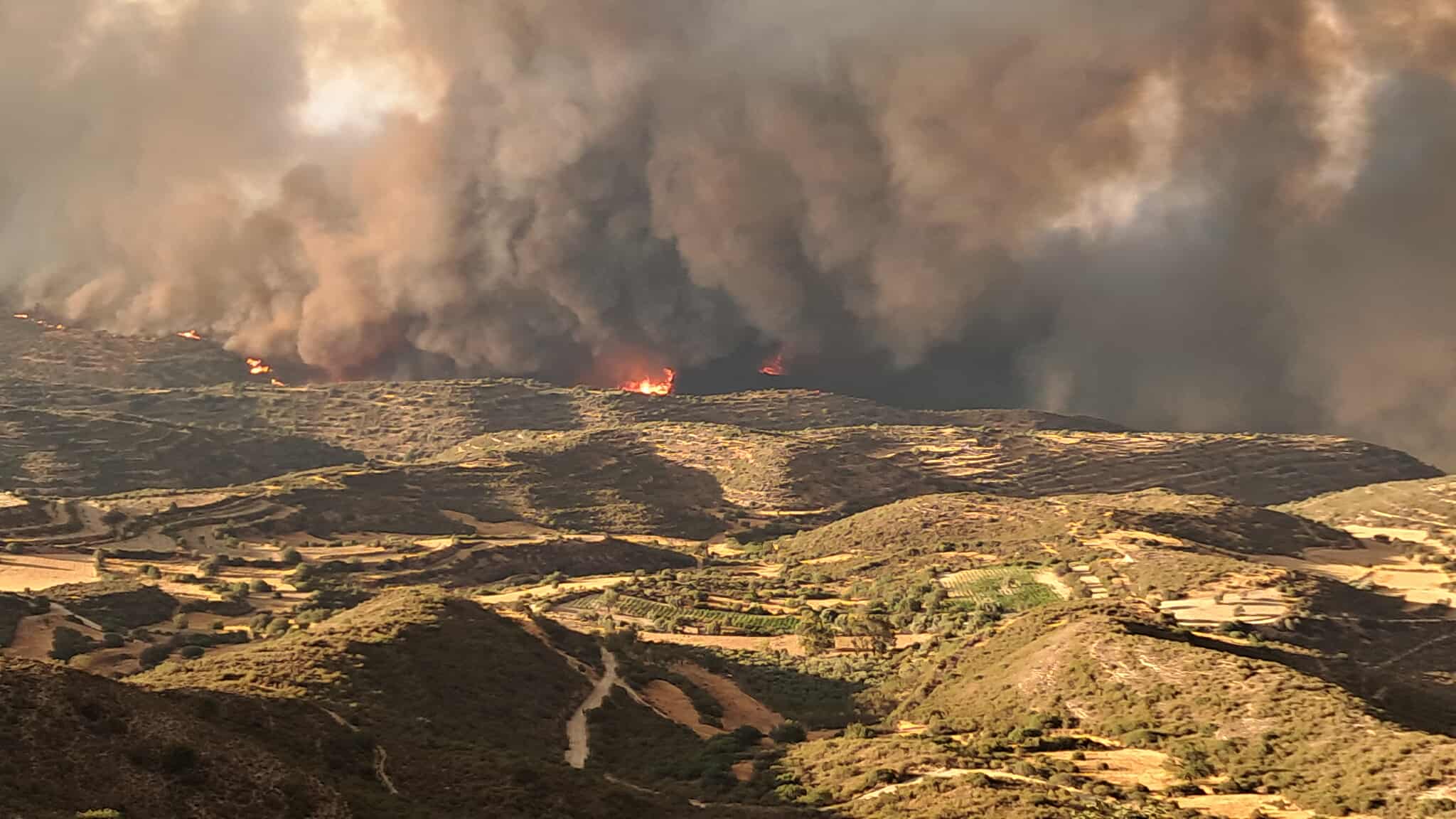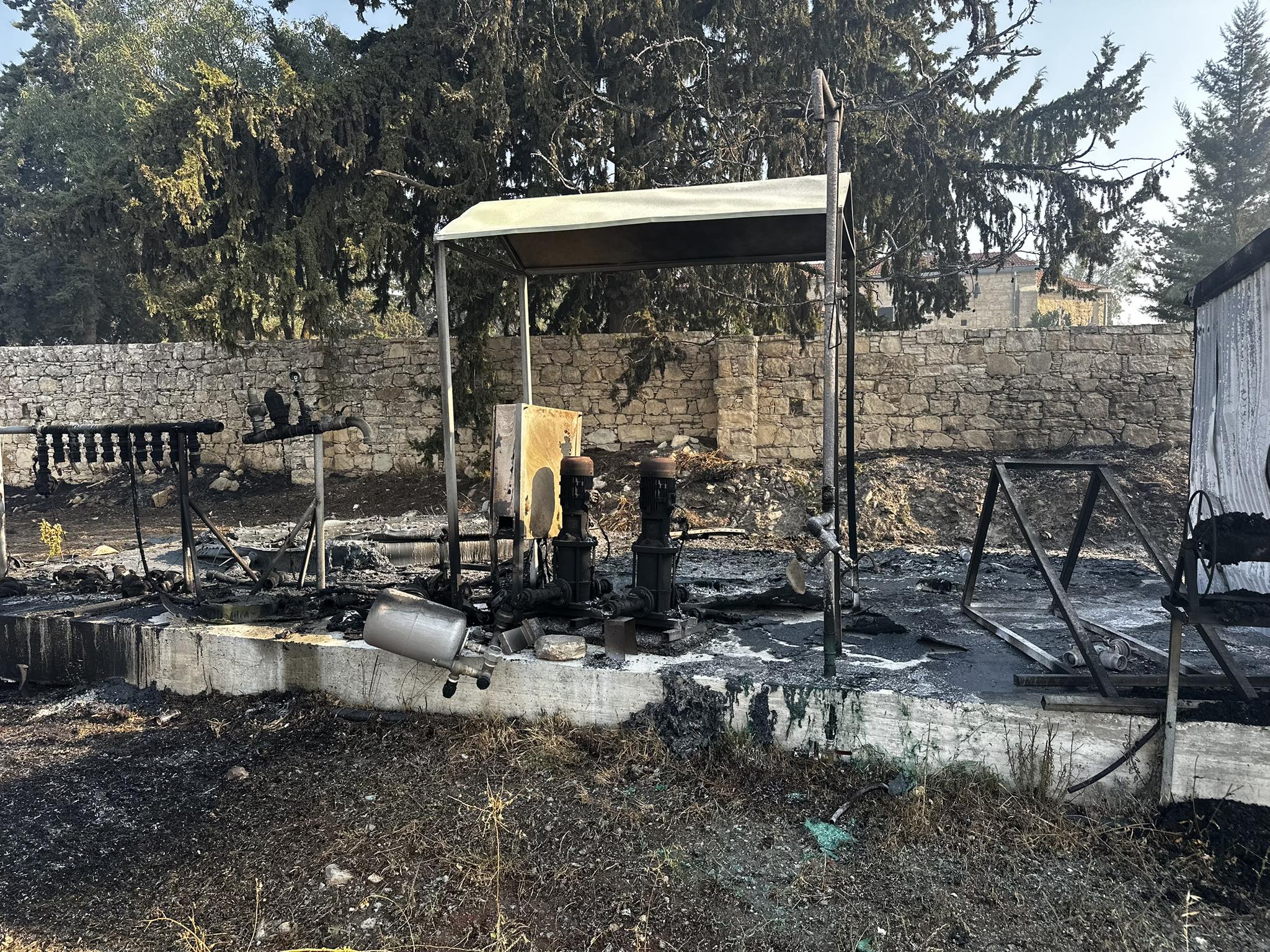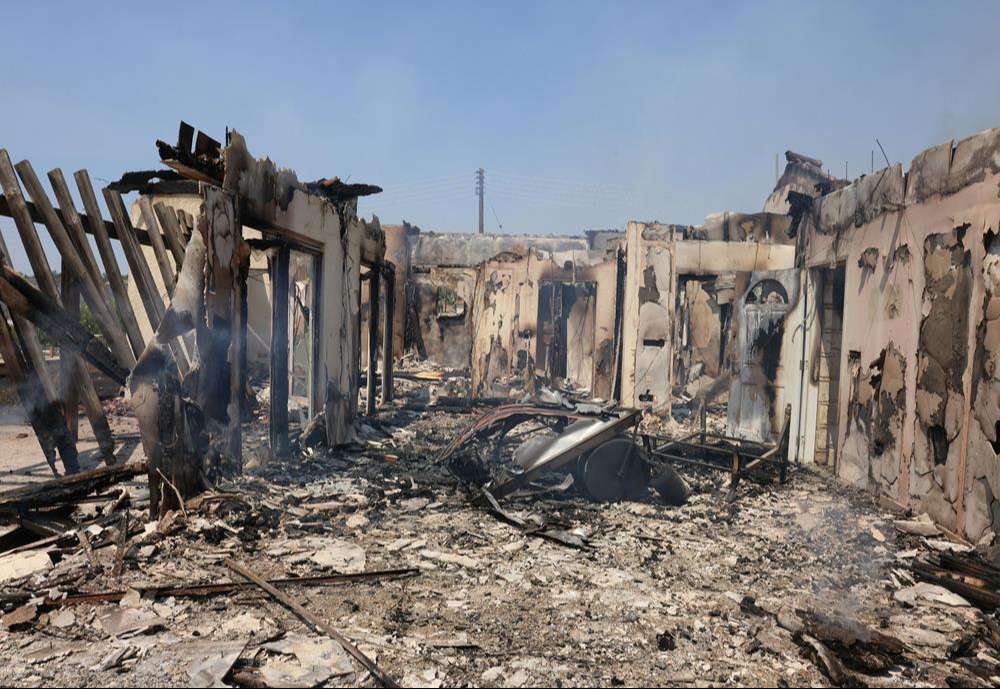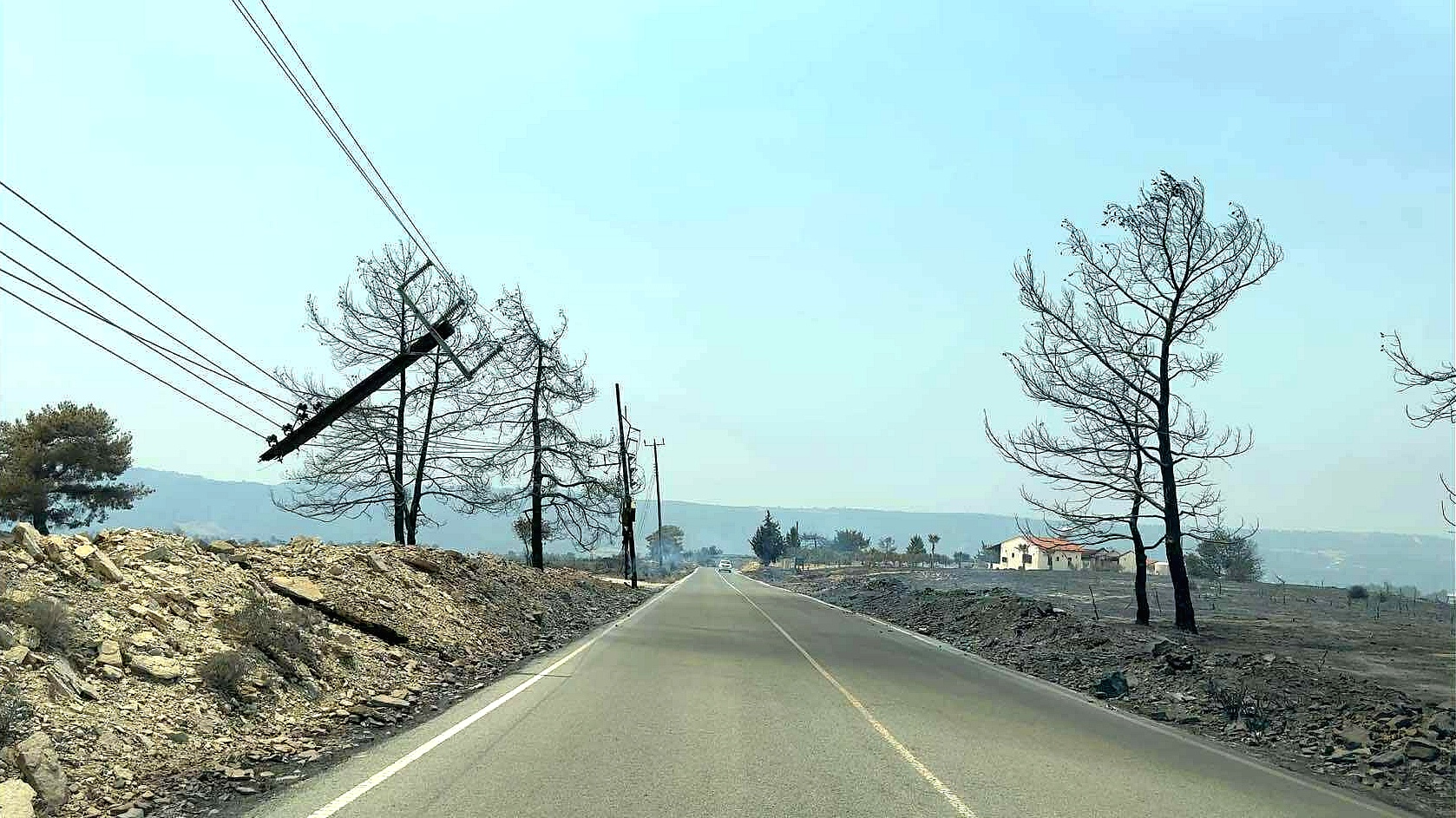Two people were confirmed dead on Thursday after being trapped in their car near Monagri, as wildfires swept across villages in the hills above Limassol. Entire communities were forced to evacuate with little to no warning, as residents, volunteers, and relatives scrambled to protect homes and lives with whatever means they had.
The fire, which broke out late Wednesday, left a trail of devastation across villages including Kivides, St Therapon, and Lofou.
Dozens of homes, farms, cars and olive groves were reduced to ash. Residents described chaos, a lack of official communication, and a desperate reliance on neighbours and strangers to survive the flames.
Among the victims were an elderly couple whose car was found burned out on the roadside near Monagri. Charia Vasiliou, a member of Depa’s political council and a relative, said the family was awaiting DNA confirmation. “It must be them — my husband’s uncle and aunt,” she said. “They were burned alive.”

“This isn’t about blaming people,” said Fani Anastasiou, a sign language tutor whose home village of Kivides was ravaged. “It’s about protecting lives. No one came when it mattered most.”
At a police checkpoint near the Monagri–Alassa road, smoke still curled above the mountains and ash hung heavy in the air.
Roads into the disaster zone were blocked, but evacuees, volunteers and relatives gathered nearby, sharing fragments of the night’s horror – and their growing anger.
“They lost everything,” said a man from St Therapon, standing beside his pickup truck. “My uncle stayed behind to fight the fire with buckets. We don’t know if he made it.”
Residents spoke of scant firefighting resources, with just one fire engine covering every five to seven kilometres of burning land.
“There weren’t enough trucks, not nearly,” one evacuee said.
“Without the volunteers, neighbours, strangers, people who didn’t wait for orders, more would have died. More homes would have burned.”

Another added, “The state’s help came too late, but the people, the volunteers, they were the ones who stood in the flames, fighting with buckets and bare hands. They saved what they could.”
Many residents said they spent the night clinging to their phones, exchanging rumours and updates because, as one woman relayed to the Cyprus Mail, “the authorities told us nothing. The fire service’s official page was silent, not a single alert, not one update on the blaze’s direction.”
“We had no idea when to evacuate,” she said.
“My family had to drive into the flames to see if we could save anything, only to discover there was no water, no fire engine, nothing.”
When she tried to call the emergency line, there was no signal. Once she finally got through, she was told to “ask your community leader or your neighbours if it’s time to leave.”
“I asked how I’d know, with no neighbours and no warning. They said they’d call me if I had to leave. No call ever came.”
The fire reached within metres of her house.
“If I’d waited for them,” she said, “I’d be dead.”
At a roadside aid station in Erimi, volunteers offered water and basic medical care. One woman was being given oxygen after inhaling too much smoke.
She had fled with her children, leaving their dog behind. “I don’t know if our house is still there,” she said, before breaking down in tears.
A resident from St Therapon told the Cyprus Mail by phone that his village was devastated. “We asked for planes before the fire even reached us. None came. People fought with their hands.”
A Greek Orthodox priest, Father Michalis, was among those forced to evacuate from Lofou. He described the experience as “sheer hell.”
The fire continued to ravage the district on Thursday, with flare-ups continuing into the evening, driven by strong winds that made it harder to contain.
“These flames may go out,” Anastasiou said, “but the pain won’t. And it must not be forgotten.”







Click here to change your cookie preferences